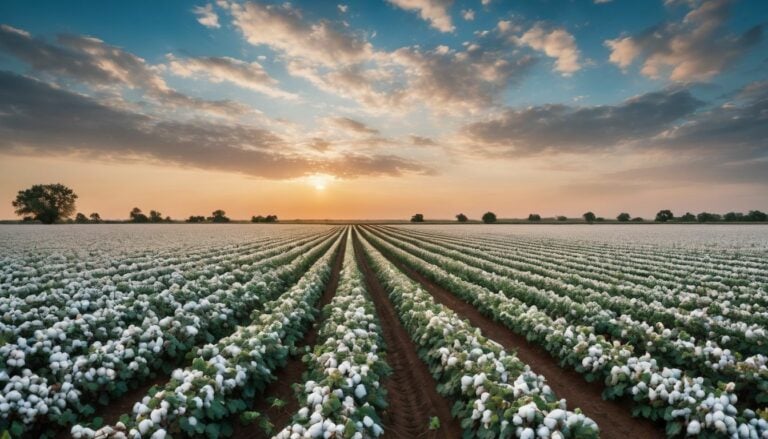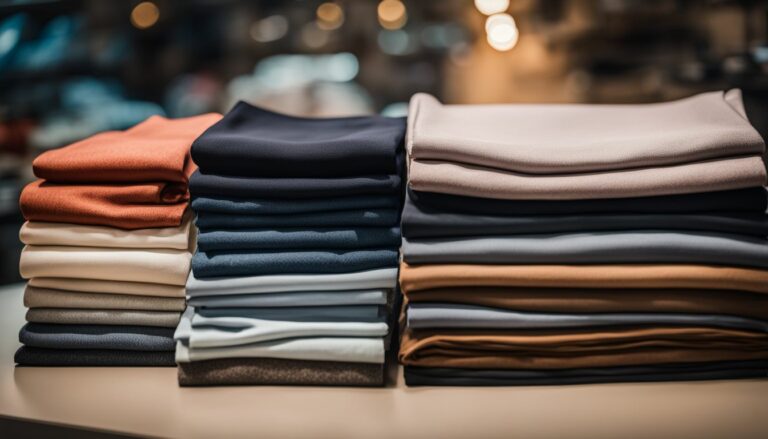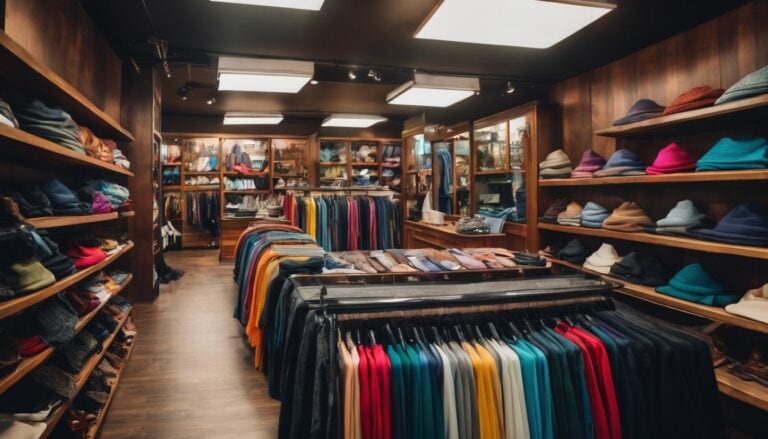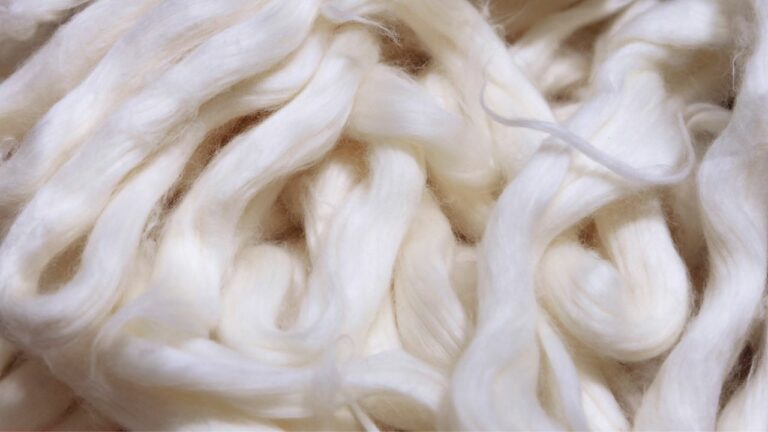Understanding the Sustainability and Ethics of Wool: A Comprehensive Guide
As a conscious consumer, the welfare of animals and our environment are paramount when choosing clothing materials. Did you know that wool production can be fraught with ethical issues and environmental concerns? Our comprehensive guide dives into these potential pitfalls, offering clarity on how you might source sustainable and ethical wool.
Ready to weave your way through this complex topic? Let’s unravel the truth about wool together!
Key Takeaways
- Wool production can have ethical issues, such as painful practices like mulesing and the connection between wool and the meat industry.
- The environmental impact of wool includes energy-intensive fleece production and potential genetic modification.
- Responsible wool certifications like GOTS and RWS ensure animal welfare and sustainable farming practices.
- Ethical alternatives to wool include plant – based fibers, synthetic materials, recycled fabrics, biofabricated materials, and faux fur.
Ethical Issues with Wool Production
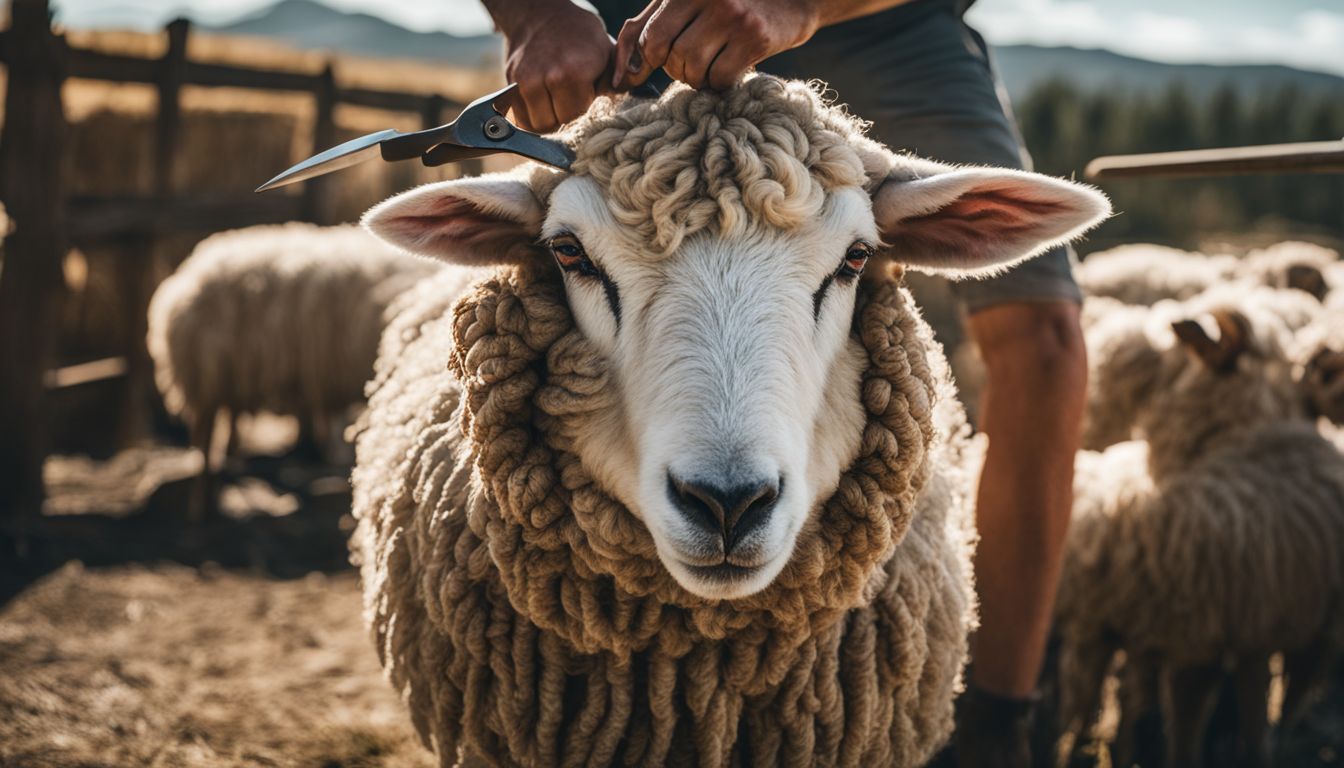
Wool production raises ethical concerns due to the impact on animals and painful standard practices, such as mulesing. Additionally, there is a connection between the wool and meat industries, with winter lambing having adverse effects on sheep.
Impact on animals and painful standard practices
Sheep feel pain in wool production. They are often hurt when farmers take off their fleece. This practice is called mulesing, and it can be very painful for them. There are ways to get wool that do not harm sheep, but not all farms use these methods.
So, some sheep suffer a lot for the sake of our clothes and blankets.
The connection between wool and meat industry
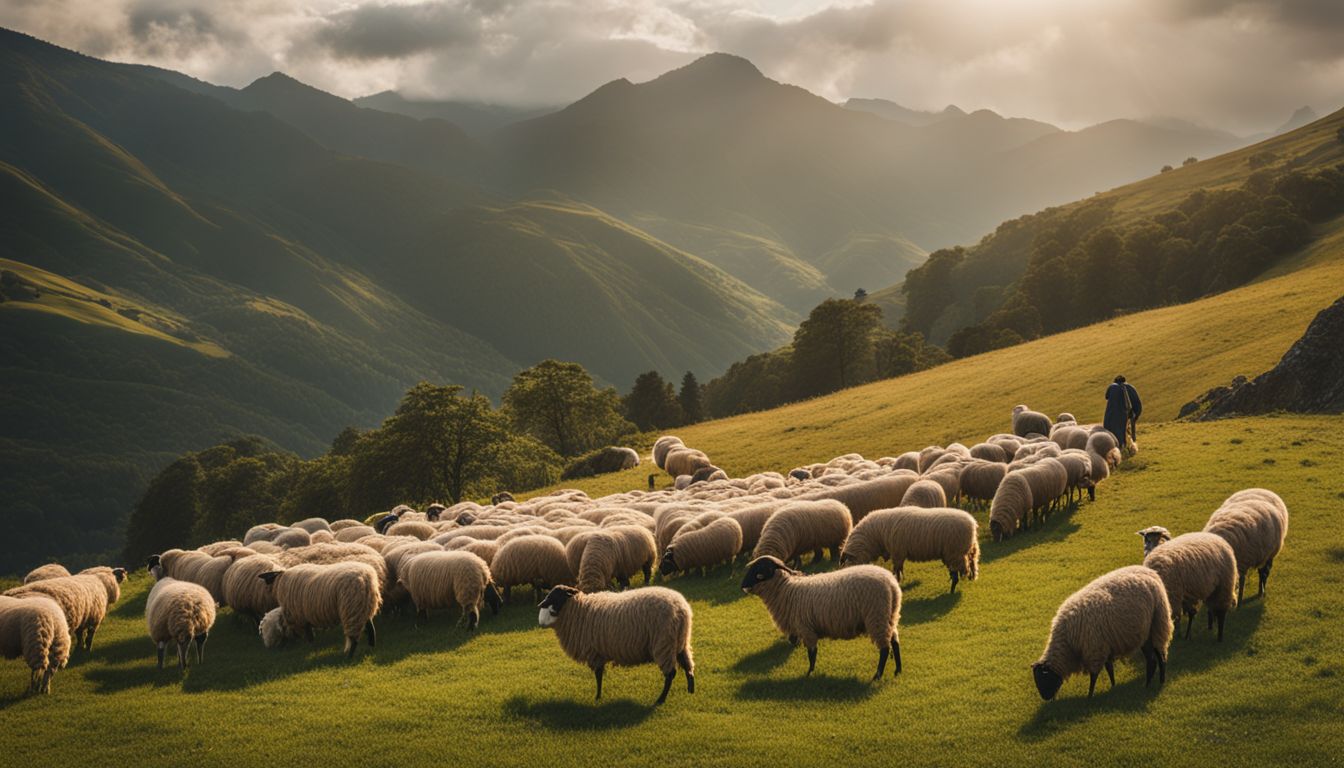
Wool and the meat industry are closely connected. Many sheep raised for wool also produce lamb meat. This means that the demand for wool directly contributes to the breeding and raising of sheep for both their fleece and their meat.
The winter season is especially significant in this connection, as it is when most lambs are born. However, some ethical concerns arise from this practice, such as winter lambing potentially negatively impacting the health and well-being of sheep.
It’s important to consider these connections when discussing the sustainability and ethics of wool production.
Winter lambing and its impact on sheep
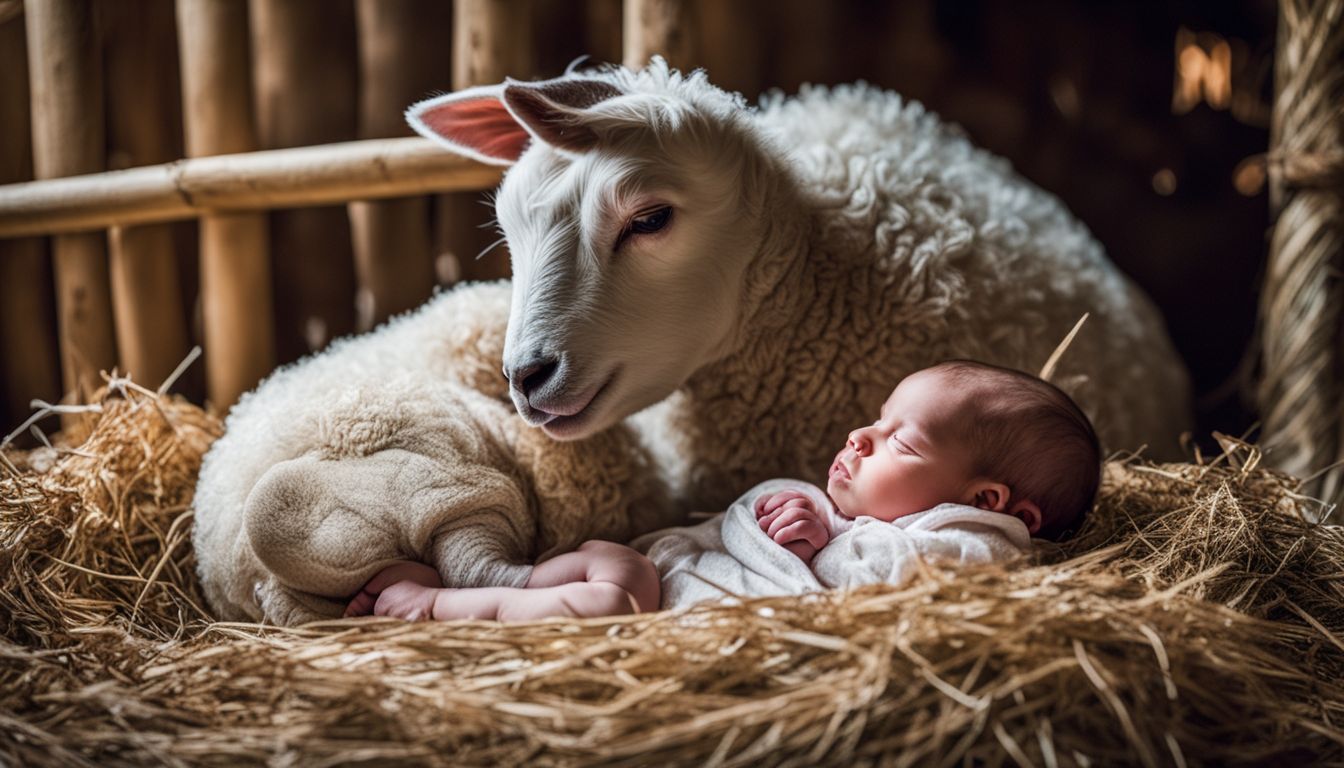
Winter lambing can have a significant impact on sheep. During this time, the cold weather and harsh conditions can pose risks to both the pregnant ewes and their newborn lambs. The low temperatures and wet environment increase the chances of hypothermia, especially for lambs that are born weak or premature.
Additionally, the lack of fresh grazing during winter can lead to nutritional deficiencies for the pregnant ewes, affecting their overall health and ability to produce adequate milk for their lambs.
It is crucial for farmers to provide proper shelter, nutrition, and veterinary care during winter lambing to ensure the well-being of both the ewes and their offspring.
Environmental Impact of Wool
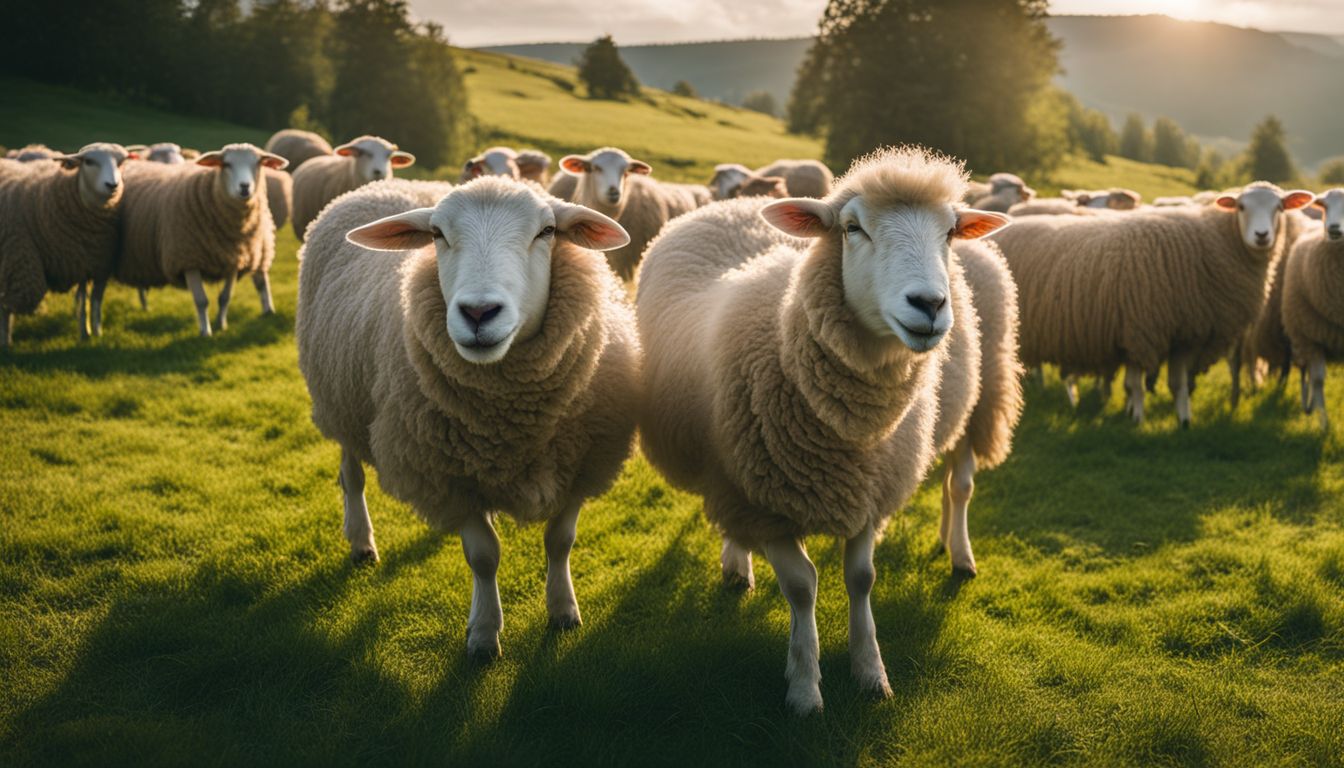
Wool production has a significant environmental impact due to factors such as the energy-intensive process of fleece production and the potential for genetic modification, which can lead to disease resistance.
Sustainability of wool production
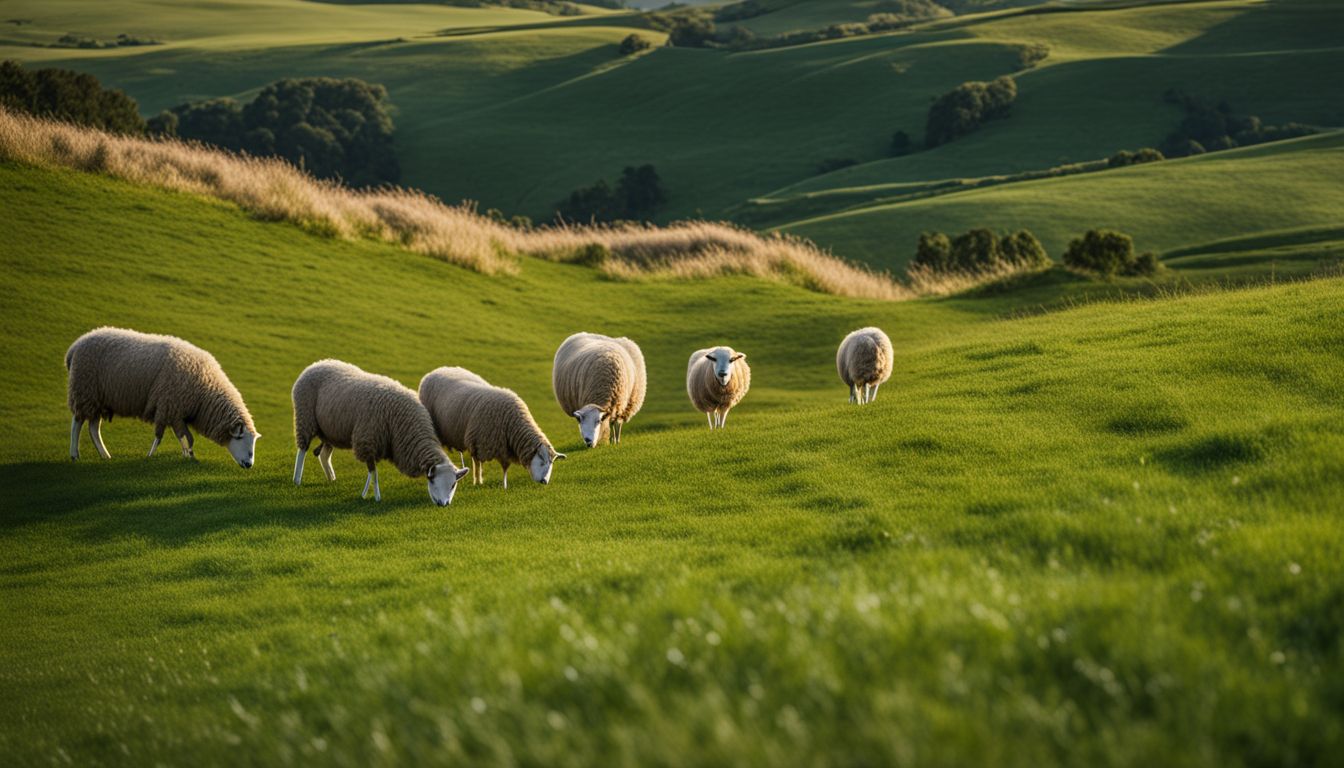
Wool production can have a positive impact on sustainability. It has the potential to act as a carbon sink, meaning it can absorb more carbon dioxide from the atmosphere than it releases.
Merino wool, in particular, has a relatively low environmental impact compared to other fabrics used in the fashion industry. Additionally, responsible wool farming practices, such as organic certification by organizations like GOTS, ensure that sheep are treated well and that environmentally-friendly practices are followed.
So when choosing wool products, considering their sustainability and ethical aspects is important for supporting a more sustainable textile industry.
Fleece production and its effects on the environment
Fleece production can have significant effects on the environment. For example, the process of shearing sheep to obtain fleece requires a lot of water. Additionally, chemicals used in treating and dyeing fleece can pollute nearby water sources if not properly managed.
The carbon footprint of wool production is also a concern, as it contributes to greenhouse gas emissions. However, it’s important to note that compared to synthetic fibers like polyester, wool has a lower environmental impact overall.
Genetic modification and disease resistance
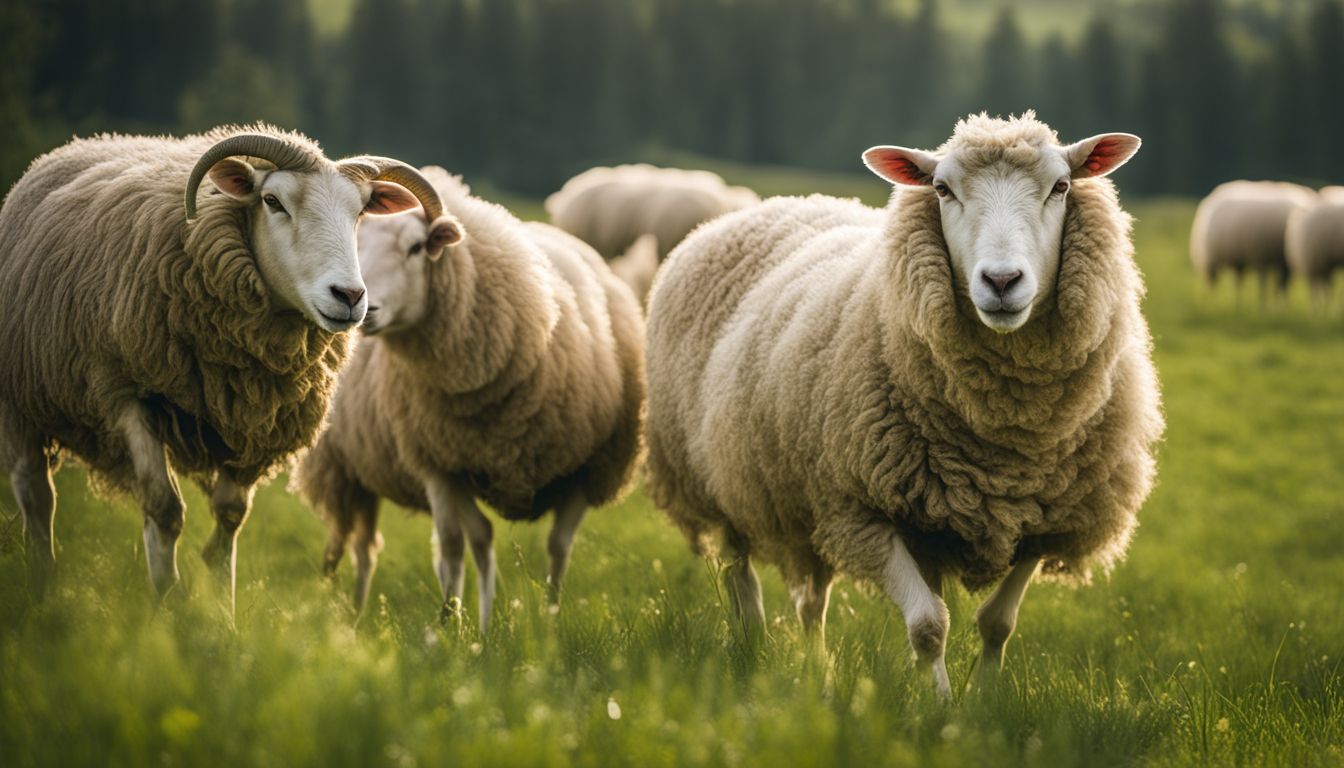
By modifying their genes, scientists can help protect the sheep from harmful illnesses. This not only benefits the welfare of the animals but also reduces the need for antibiotics and other medications.
Disease-resistant sheep can lead to more sustainable and ethical wool production practices in the long run.
Worker’s rights in the wool industry
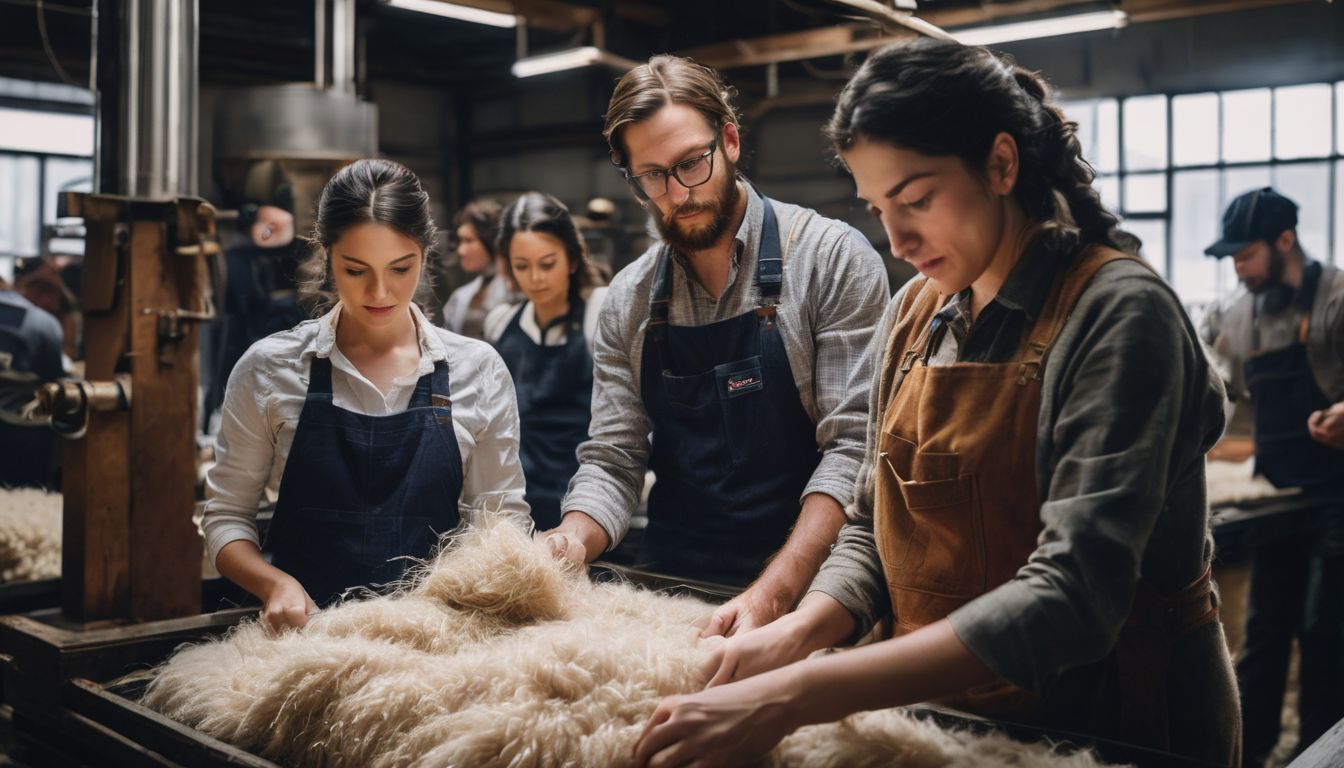
Worker’s rights in the wool industry are an important consideration when examining its sustainability and ethics. It is crucial to ensure that workers involved in wool production are treated fairly and have safe working conditions.
This includes fair wages, reasonable working hours, and access to proper protective gear. By prioritizing worker’s rights, we can contribute to creating a more sustainable and ethical supply chain for wool.
Different Types of Ethical Wool
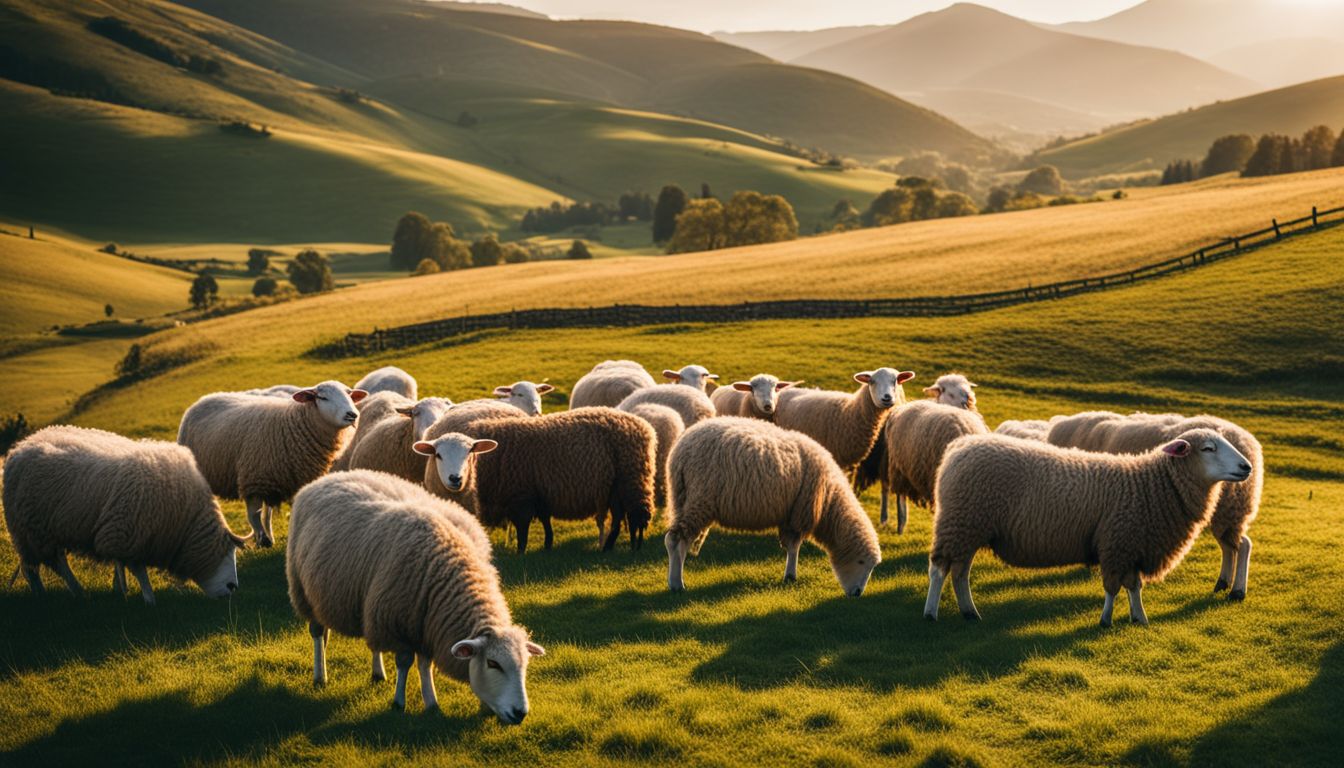
– Responsible wool certifications ensure that the wool is sourced from farms that prioritize animal welfare and environmental sustainability.
Responsible wool certifications
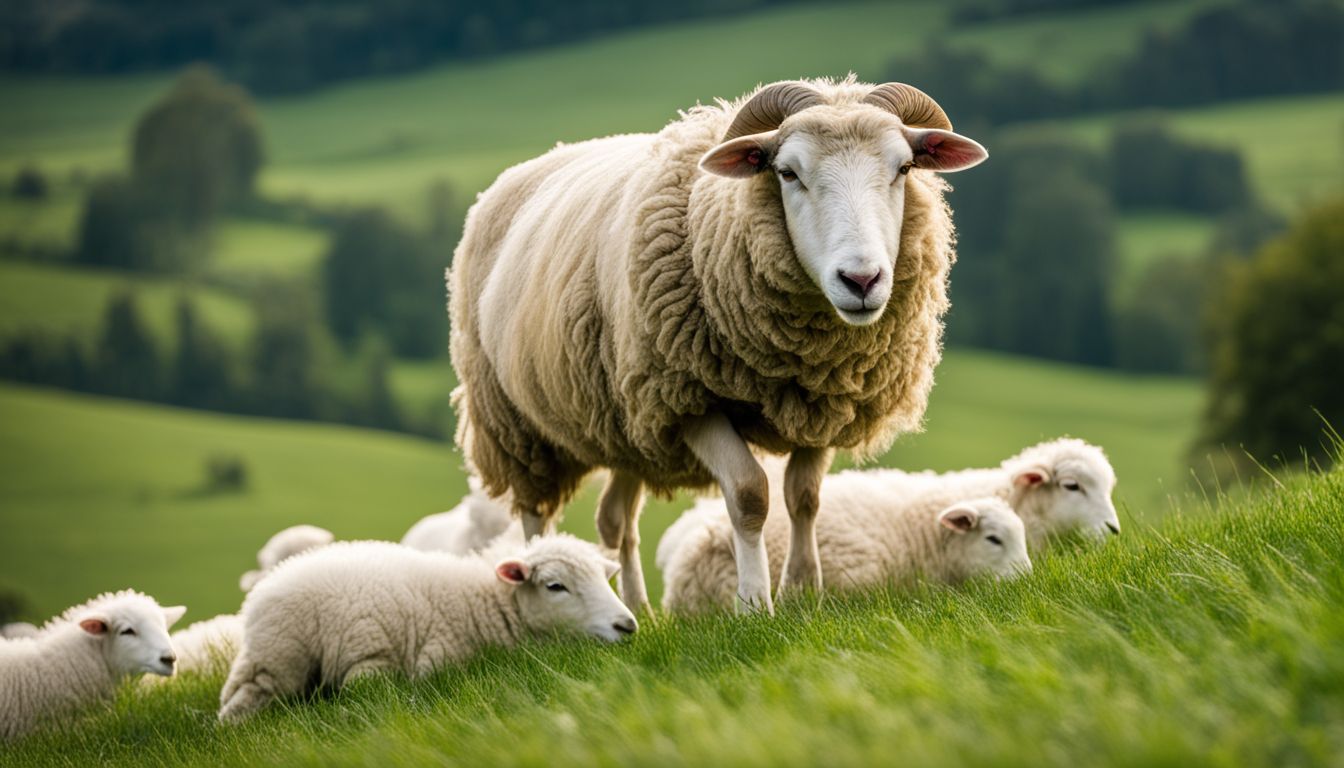
Responsible wool certifications:
- Global Organic Textile Standard (GOTS) certification ensures that wool is produced using organic farming practices and meets social and environmental criteria.
- Responsible Wool Standard (RWS) certification verifies that sheep are treated well and ensures traceability throughout the supply chain.
- Bluesign certification focuses on the environmental impact of the entire production process, including dyeing and finishing.
- OEKO – TEX Standard 100 certification guarantees that wool products are free from harmful substances and chemicals.
- Soil Association Organic certification promotes sustainable farming methods and animal welfare in wool production.
- Fairtrade certification ensures fair wages, safe working conditions, and support for local communities in the wool industry.
Biodegradability of wool
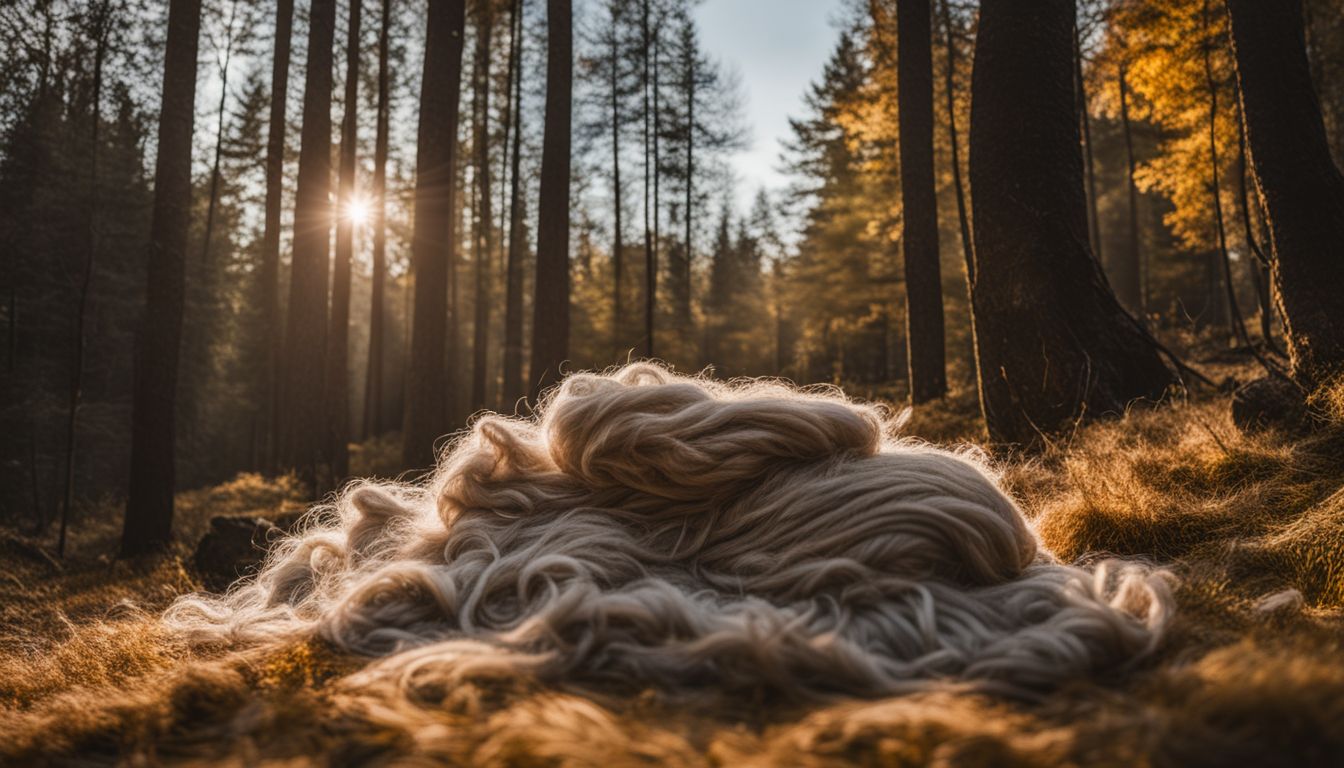
Wool is a biodegradable material, which means it can break down naturally in the environment. When wool is disposed of, it decomposes over time and becomes part of the soil. This makes wool a sustainable choice compared to synthetic fabrics that do not break down easily and contribute to plastic waste.
Additionally, wool has unique properties that make it resistant to odor and stains, reducing the need for frequent washing and prolonging its lifespan. These factors contribute to the overall durability and eco-friendliness of wool as a biodegradable fabric option.
Durability of wool

Wool is known for its durability, making it a long-lasting option for clothing and other textile products. Wool fibers are strong and resilient, allowing them to withstand wear and tear over time.
In fact, wool garments often outlast their synthetic counterparts. This durability not only reduces the need for frequent replacement but also contributes to the sustainability of wool as a renewable resource.
Additionally, wool’s natural elasticity helps it retain its shape.even with repeated use and washing. So when you choose wool products, you can feel confident that they will stand the test of time while minimizing your environmental impact.
Ethical Alternatives to Wool

Explore a range of animal-free and sustainable fabric options that serve as ethical alternatives to wool, such as recycled silk and eco-friendly textiles.
Animal-free wool alternatives
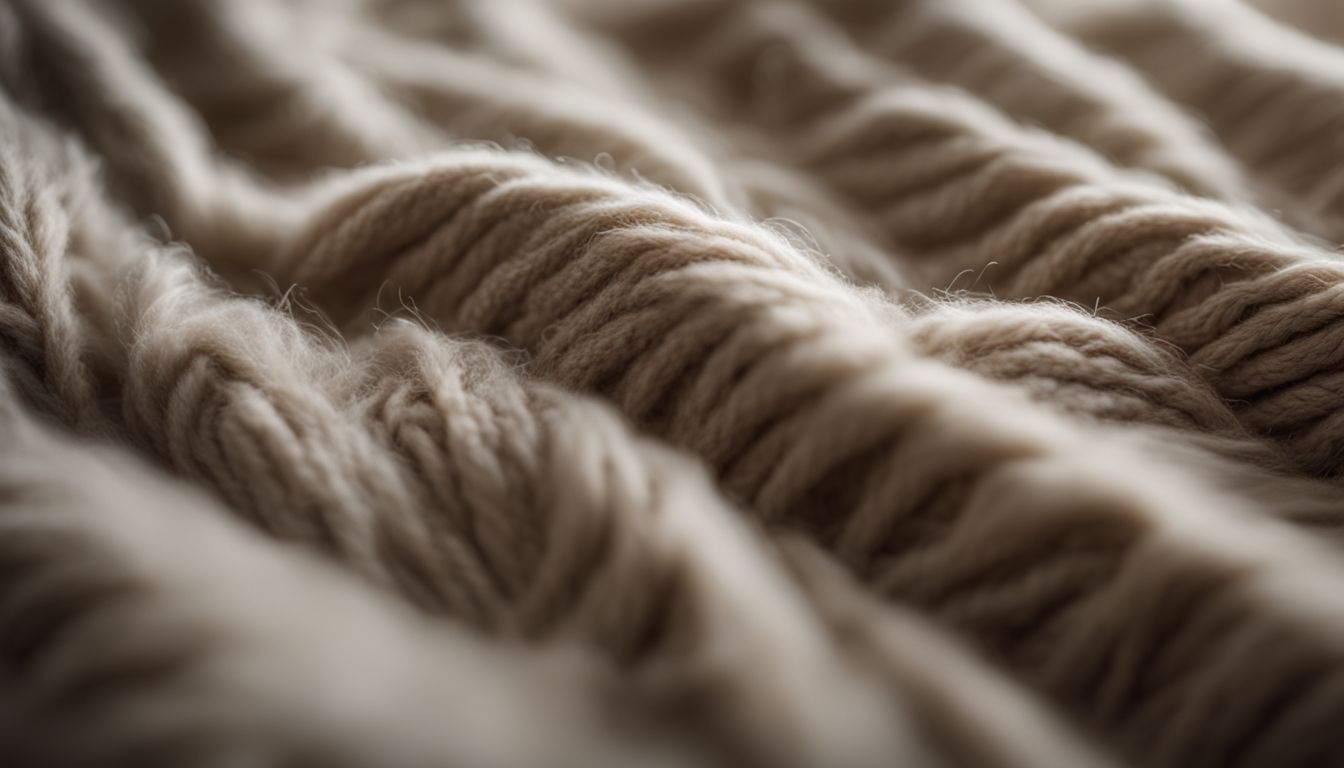
Animal-free wool alternatives are becoming more popular as people seek sustainable and ethical options for clothing. Here are some animal-free wool alternatives to consider:
- Plant-based fibers: Fabrics made from plants such as cotton, hemp, bamboo, and linen are natural and biodegradable options that don’t involve animals.
- Synthetic fibers: Man-made materials like polyester, nylon, and acrylic can mimic the texture and warmth of wool without using any animal products.
- Recycled materials: Fabrics made from recycled plastic bottles or other textiles help reduce waste and minimize the need for new resources.
- Biofabricated materials: Innovations in technology have led to the creation of biofabricated materials that replicate the properties of wool without harming animals.
- Faux fur: Faux fur is a popular option for those looking for a cruelty-free alternative to traditional wool.
Sustainable and ethical fabric options for clothing
Sustainable and ethical fabric options for clothing include:
- Organic cotton: Cotton that is grown without the use of harmful pesticides and chemicals, protecting both the environment and workers.
- Hemp: A versatile and eco-friendly fabric that requires very little water and no pesticides to grow. It can be used to create durable clothing items.
- Tencel (Lyocell): Made from sustainably sourced wood pulp, Tencel is produced using a closed-loop process that minimizes waste and chemical usage.
- Bamboo: A fast-growing plant that requires less water than cotton, bamboo fibers are used to make soft and breathable fabrics.
- Recycled polyester: Made from recycled plastic bottles or textile waste, this fabric helps reduce landfill waste and saves energy compared to producing new polyester.
- Linen: Derived from flax plants, linen is a natural fiber known for its breathability and moisture-wicking properties. It is also biodegradable.
- Ahimsa silk: Also known as peace silk, Ahimsa silk is produced without killing silkworms. Instead, it allows the silkworms to complete their metamorphosis before harvesting the cocoons.
Brands Using Ethical Wool
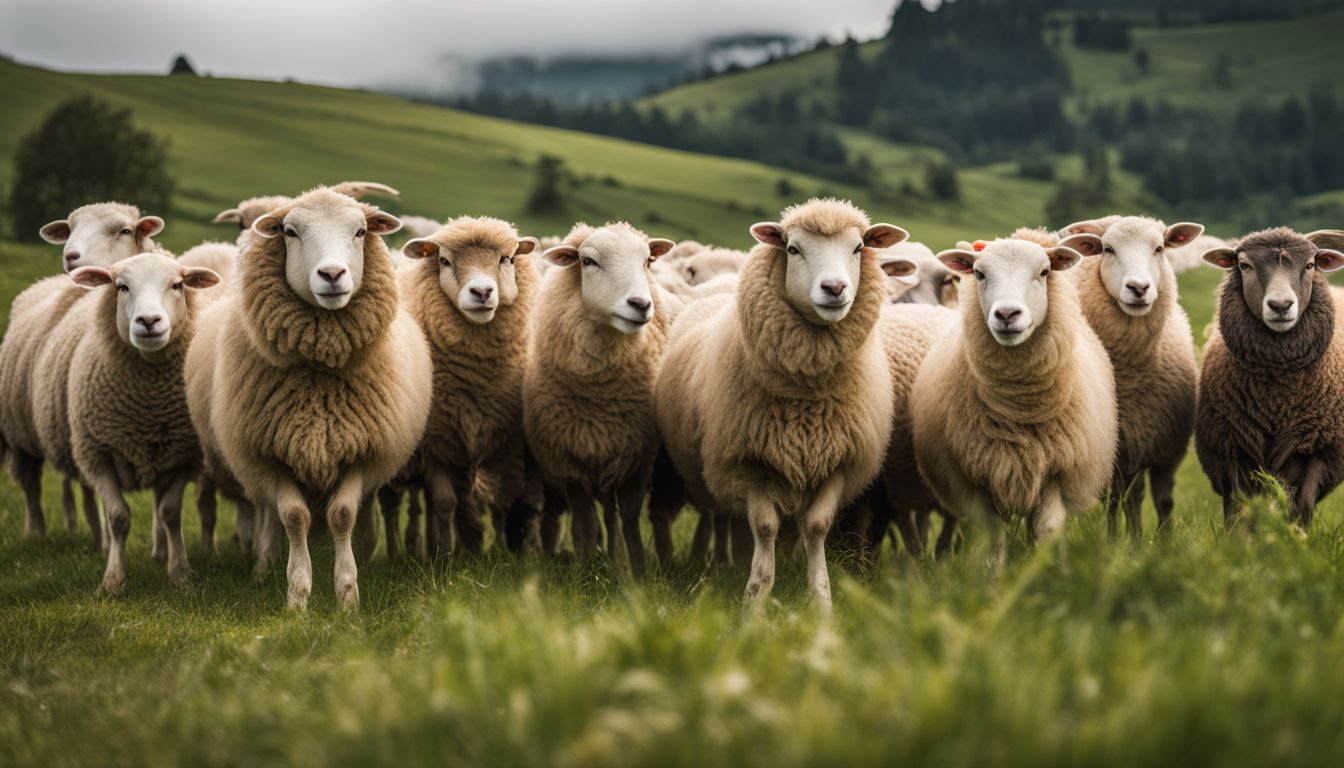
Highlighting brands that prioritize ethical and sustainable wool production, promoting conscious consumer choices, and emphasizing the importance of supporting responsible brands in the fashion industry.
Highlighting brands that prioritize ethical and sustainable wool production
Brands that prioritize ethical and sustainable wool production:
- Patagonia, a renowned outdoor clothing company, is committed to using sustainably sourced materials, including wool. They ensure high animal welfare standards and work closely with their suppliers to promote ethical practices.
- Icebreaker is another brand that focuses on sustainability in their wool production. They have strict guidelines for animal welfare and work with farmers who prioritize environmental stewardship.
- EILEEN FISHER, a well – known fashion brand, sources merino wool from New Zealand farms that follow strict animal welfare standards and prioritize sustainable land management practices.
Promoting conscious consumer choices
To promote conscious consumer choices, it is important to educate people about the sustainability and ethics of wool production. Consumers should be encouraged to consider the impact of their clothing choices on animal welfare and the environment.
By supporting brands that prioritize transparency, ethical practices, and responsible sourcing of wool, consumers can contribute to a more sustainable fashion industry. It is also essential for consumers to research and look for certifications such as Global Organic Textile Standard (GOTS) when seeking out ethically produced wool products.
Making informed decisions can help drive positive change in the textile industry and ensure a more ethical future for both animals and the planet.
The importance of supporting responsible brands in the fashion industry.
Supporting responsible brands in the fashion industry is crucial for promoting sustainability and ethical practices. By choosing to purchase from these brands, consumers can contribute to positive change in the garment industry.
Responsible brands prioritize transparency and ensure that their products are made with respect for workers’ rights and animal welfare. They also strive to minimize their environmental impact by using sustainable materials and manufacturing processes.
Supporting responsible brands sends a powerful message that ethical practices should be the norm rather than the exception in the fashion industry, encouraging other companies to follow suit.
Conclusion
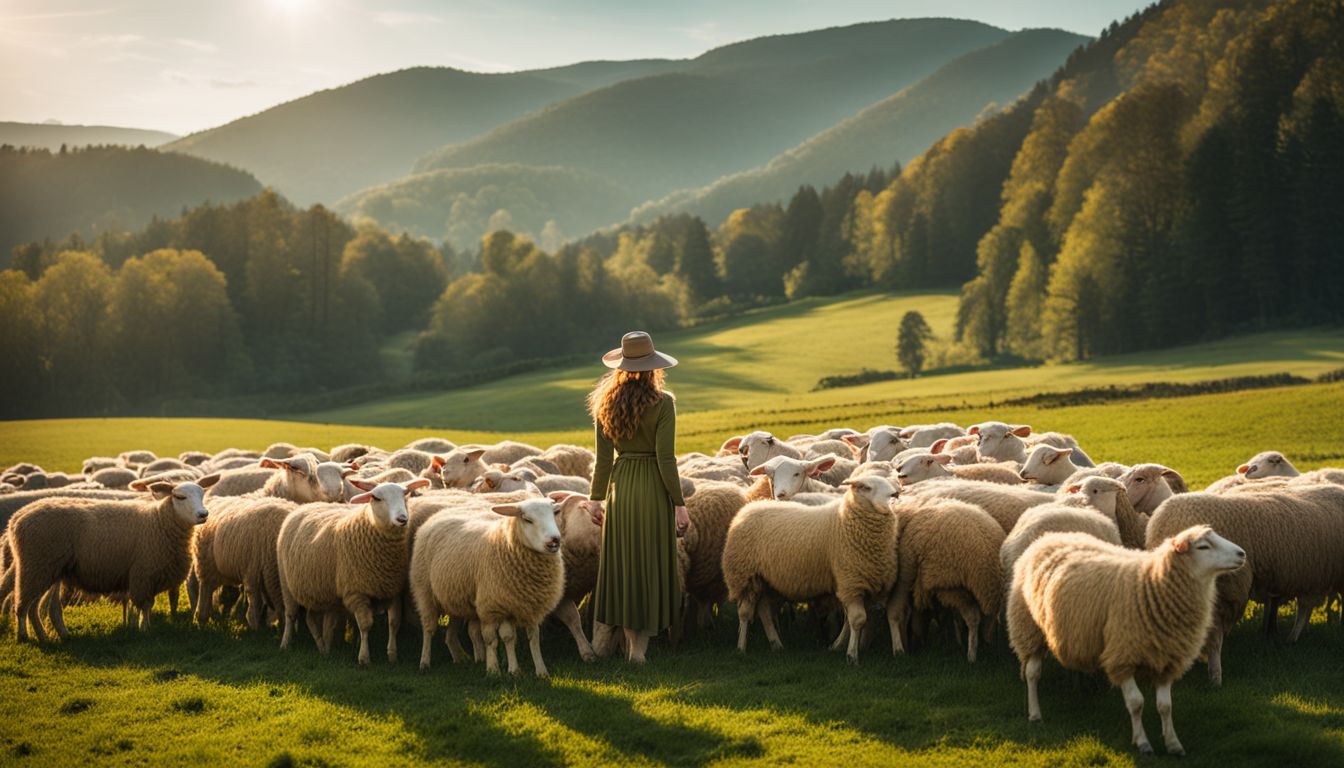
Understanding the sustainability and ethics of wool is crucial for making conscious choices in the fashion industry. By exploring the environmental impact, animal welfare concerns, and ethical alternatives to wool, we can support brands that prioritize responsible practices.
Together, we can make a positive difference in creating a more sustainable and ethical future for wool production.
FAQs
1. Is wool a sustainable and ethical material?
Yes, wool is considered to be a sustainable and ethical material as it is renewable, biodegradable, and can be produced in an environmentally friendly manner without causing harm to the animals.
2. What are some benefits of choosing sustainable and ethically produced wool?
Choosing sustainable and ethically produced wool supports animal welfare, promotes responsible land management practices, reduces environmental impact, and ensures fair treatment of workers in the industry.
3. How can I determine if a wool product is sustainably and ethically produced?
Look for certifications such as “Organic,” “RWS” (Responsible Wool Standard), or “GOTS” (Global Organic Textile Standard) on the label that indicate the product meets certain sustainability and ethical standards.
4. Are there any alternatives to conventional wool that are more sustainable and ethical?
Yes, there are alternative fibers like organic cotton, bamboo viscose, or recycled polyester that can be used as substitutes for conventional wool if you prefer materials with lower environmental impact or stricter animal welfare standards.


